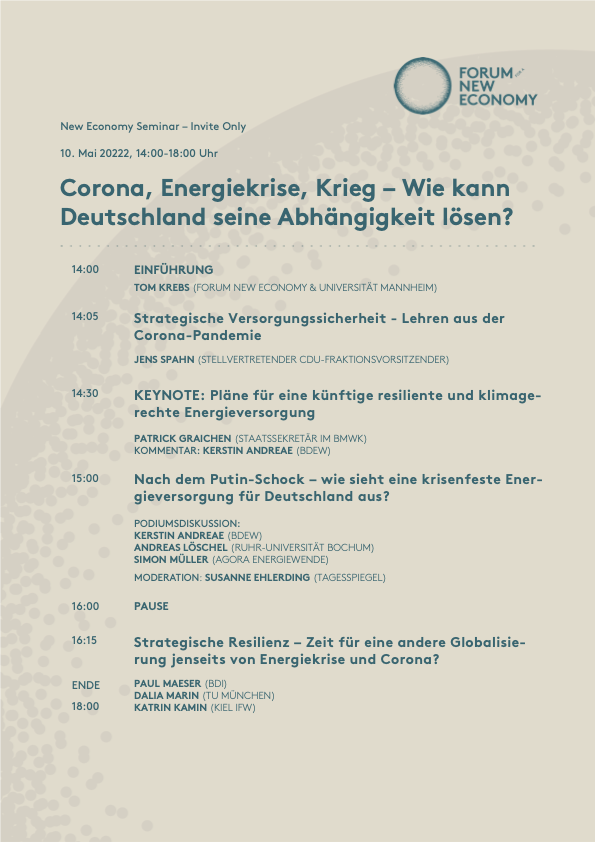GLOBALIZATION
Corona, Energy Crisis, War - How Can Germany Reduce its Dependency? Seminar with Patrick Graichen and Jens Spahn
The German economy is steering through difficult waters. How could German energy policy and globalization be redefined in light of the many crises? We have invited selected experts to discuss answers at our New Economy Seminar.
BY
SONJA HENNENPUBLISHED
11. MAY 2022READING TIME
3 MIN
War, climate and energy crisis, pandemic, inflation – these are troubled times for the German economy. In the midst of the crises, the German government is struggling to find ways and means of making German energy, climate and foreign policy fit for the future while at the same time cushioning private households from the drastic price increases. In the process, many of the economic policy decisions made in the past appear to be under scrutiny. From the rapid energy turnaround to the belief in peace-making globalization – many supposed givens are currently being questioned.
To mark the occasion, our New Economy Seminar brought together a select group of experts from academia and practice to discuss how a redefinition of German energy policy and globalization can succeed amidst war and pandemic.
What exactly is the German government planning to do to permanently reduce dependencies such as those on Russian energy – and can this be achieved without jeopardizing the energy transition needed to safeguard the climate? How can similar dependencies on strategically important supplies be prevented in the future? What would resilient supply chains look like – and what should Germany’s sovereign position in a globalized world be? What do leading experts recommend?
Speakers and participants included the State Secretary for Economic Affairs Patrick Graichen, CDU parliamentary group vice-chairman Jens Spahn, Kerstin Andreae (Chairwoman of the German Association of Energy and Water Industries), Dalia Marin (TU Munich), Simon Müller (Agora Energiewende) and other top experts from research, think tanks, business and politics.

